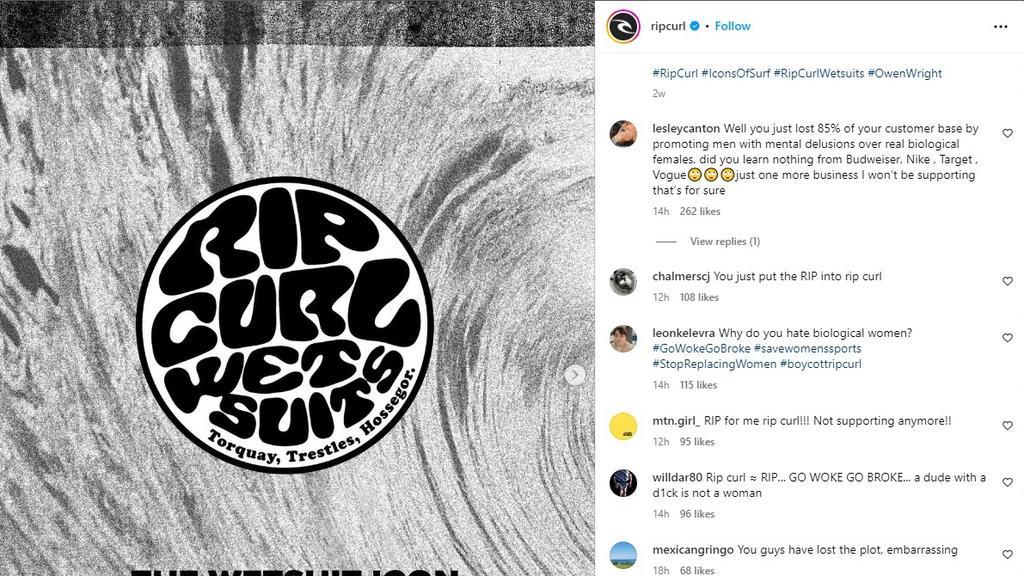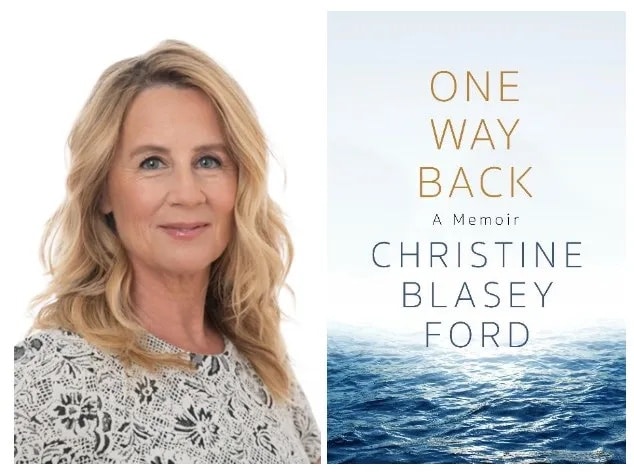Shares halved, profit down ten percent…
Go woke go broke is the overused saying, but from Budweiser to Boeing to Disney to Target to Nike to Gillette and, lately Rip Curl, there ain’t a lot to be gained by corporations embracing whatever the latest progressive trend is, alienating and confusing customers.
The Kathmandu-owned former surf icon Rip Curl, now under the auspices of CEO Brooke Farris after decades in the hands of, ugh, men, had joined a conga line of Australian swimwear companies in pivoting to the growing trans-woman market.
In an Instagram reel as part of Rip Curl Women’s Meet the Local Heroes of Western Australia campaign, Rip Curl Women featured the inspirational T-girl Sasha Jane Lowerson.
Rip Curl refused to react even as the firestorm spread worldwide and customers were filmed burning boardshorts and throwing their booties in the trash and the hashtag @boycottripcurl trended on X.
They got so much heat, including from high profile anti-trans-gals-in-sports activists Riley Gaines ad Taylor Silverman as well as from their own former team rider Bethany Hamilton, who reportedly split from Rip Curl ‘cause of her anti-T gal stance, they removed the post and apologised.
“Our recent post has landed us in the divisive space around transgender participation in competitive sport. We want to promote surfing for everyone in a respectful way, but recognize we upset a lot of people with our post and for that, we are sorry. To clarify, the surfer featured has not replaced anyone on the Rip Curl team and is not a sponsored athlete.”
Which in turn got ‘em into the fire with the queer crowd.
Surf Equity described the “so-called” apology as “divisive, anti-trans, and discriminatory. The LGBTQIA+ community is appalled. Aligning with bigots harms your brand identity and fails to support your LGBTQIA+ employees.”
Now, it can be revealed, Rip Curl sales had already plummeted almost ten percent or twenty-five mill over the first half of the financial year, and the results of the Boycott Rip Curl are yet to be felt.
One year ago, the parent company’s shares were a buck apiece, now they’re less than fifty cents.







